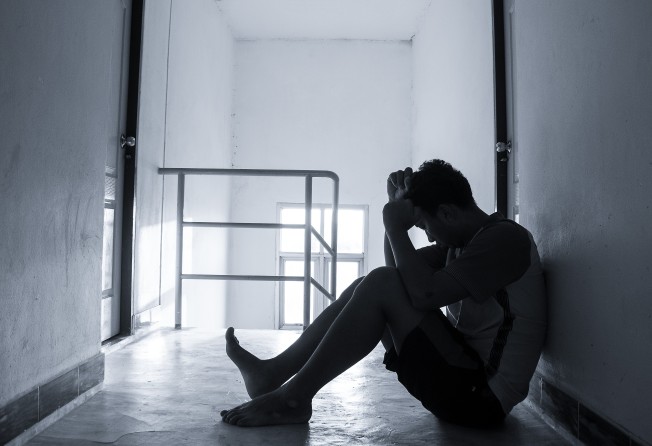
Why mental health awareness should start in Hong Kong schools and companies
Study by non-profit group calls for government and employers to tackle taboo and misconceptions through education

In Hong Kong, where life moves at breakneck speed and the high cost of living means enormous stress for those who fall through society’s cracks, tens of thousands suffer from mental illness.
According to a new survey, the city needs to do more to educate its young on mental well-being and stamp out the taboo and stereotypes associated with those who suffer from mental illness.
The study, by non-profit group OCD and Anxiety Support Hong Kong, calls on the government to “take an active role” in incentivising companies to improve workers’ mental wellness, in a city notorious for having some of the longest working hours in the world.
The study included findings from 190 participants aged 10 to 80 who took part in a survey last October on the level of mental health awareness and education in the city. Some 164 of the respondents were Hong Kong residents.
About 60 per cent said there were no measures in their workplaces to raise awareness about mental health.

But most students surveyed – 11 out of 16 – said their schools took steps to address mental health matters. Minal Mahtani, founder and chief executive officer of OCD and Anxiety Support Hong Kong, says this could be in response to recent incidents.
“Last year, we saw a rise in the number of teenage suicides, and when there is a crisis in Hong Kong, the government responds effectively,” she says.
When there is a crisis in Hong Kong, the government responds effectively
“But in terms of a general mental health policy that ensures [the government] sticks to its objectives and maintains [a focus on] mental wellness, this is something that is not really followed.”
Mahtani says the most shocking find from the study is that almost nothing has been done in the workplace to educate both employers and employees on the importance of mental health.
She says she finds it shocking because previous studies by other groups in the past few years have already shown a decline in workers’ mental health, and the results from her survey indicate not much has improved.
“We know that Hongkongers are working overtime. We know that they are suffering from poor mental health in the workplace. But what is the government doing to actually help companies put in guidelines to improve this?” Mahtani says.
According to an official report, the Hospital Authority’s budget to address mental health issues in the city increased by almost 40 per cent from HK$3.4 billion (US$433.2 million) in 2011-12 to HK$4.7 billion in 2016-17.

Additional recurrent funding of HK$73 million will be allocated to the authority in 2017-18 to enhance mental health services.
But Mahtani, who set up the non-profit organisation in 2014, observes that some mental health sufferers are reluctant to use the services, as they are afraid of being mistakenly labelled as “violent, crazy spoiled and problematic”.
Mahtani says mental health awareness among Asians is relatively low, and mental illnesses in such cultures are seen as signs of weakness, as well as considered taboo in daily conversation.
She says her observations stem from having seen cases she has handled, where sufferers receive no support or understanding from their families. Instead, patients frequently get asked why they are unwell despite having access to basic needs such as housing and education. Sufferers are also thought to be spoiled, given there is a perception that the older generation toiled under much tougher conditions and yet did not succumb to mental illness.
Mahtani, a former counsellor at an international school, suggests the government require schools to include mental health education in the curriculum. Teachers and students would have to spend at least 45 minutes each week talking about mental well-being, with topics such as how to improve sleep.
“Schools are an important platform for anti-stigma work, especially among younger age groups, to dispel stereotypes about mental illness before they arise,” the study states. In primary schools, the focus can be on how pupils look after their own mental health such as getting enough sleep, while secondary pupils can go through a more advanced curriculum.
A 2015 study by financial services company UBS, which looked into working hours in 71 cities, found that Hongkongers worked the longest, with employees spending an average of 50.1 hours at the workplace each week – 38 per cent more than the world average.
Three out of every 100 Hongkongers aged between 16 and 75 suffer from depression, according to figures from the Centre for Health Protection, a government agency.